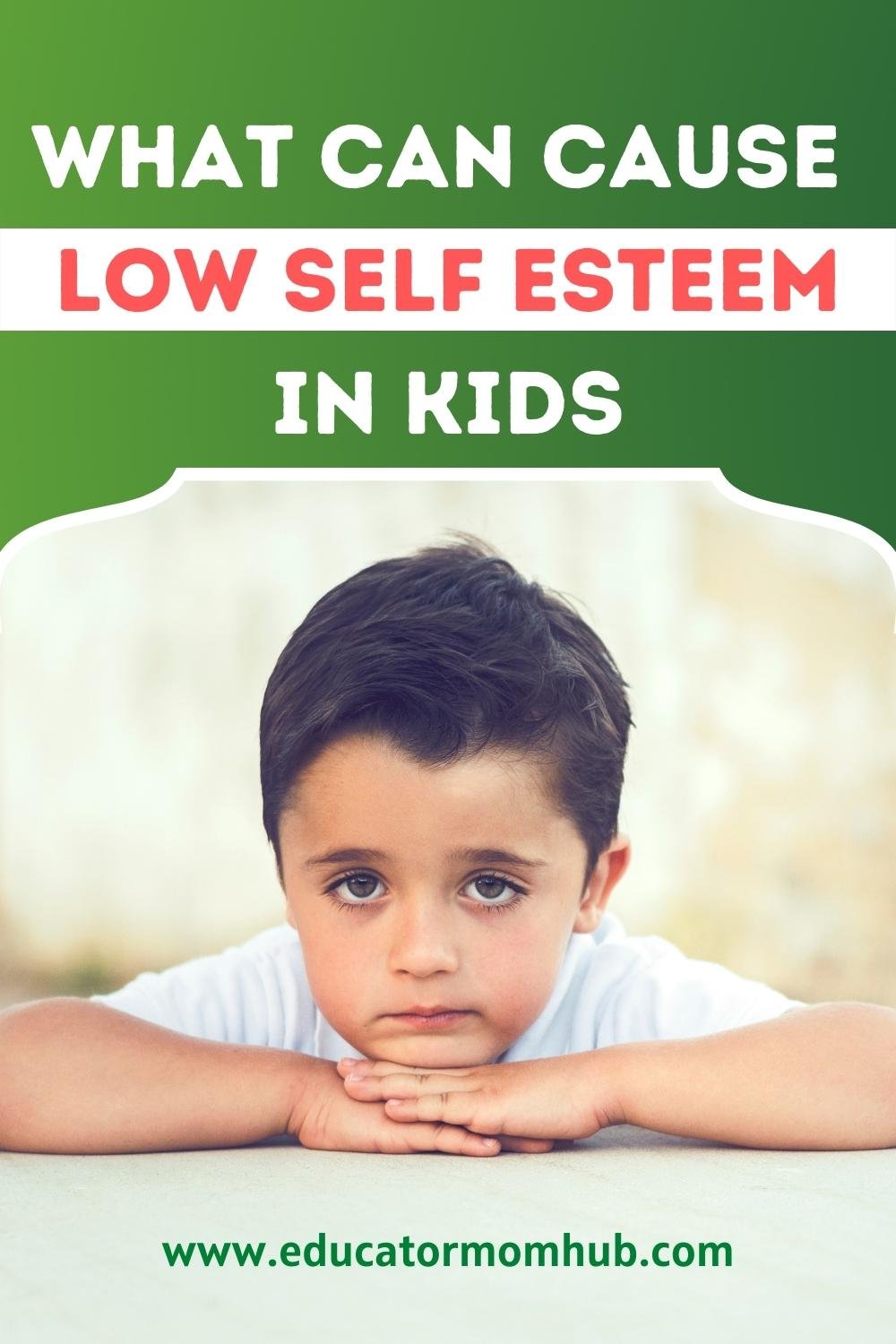How To Help Your Child Build Better Self Esteem-7 Best Preschool Activities
It’s hard to overestimate the importance of self-esteem in a child’s life.
A strong sense of self-worth can set them up for success in any area, while a lack of it can lead to all sorts of problems.
So how do you help your young child build better self-esteem?
What Is Self-Esteem and Why Is It Important?
Self-esteem is how we feel about ourselves. It’s the opinion we have of ourselves and how we see ourselves in relation to others.
When we have healthy self-esteem, we feel good about ourselves and believe that we are worthy of love, respect, and happiness. We feel confident in our ability to cope with life’s challenges and believe that we can make a difference in the world.
When we have low self-esteem, we see ourselves in a negative light. We may feel unworthy, unlovable, and incapable. We may doubt our ability to cope with life’s challenges and feel that we have nothing of value to offer the world.
Is Self Esteem and Self Confidence the Same?
It’s important to note that self-esteem is not the same as self-confidence.
Self-confidence is how we feel about our ability to do something, whereas self-esteem is how we feel about ourselves as a person.
For example, a child may have low self-esteem but high self-confidence in their ability to play the piano. Or, they may have high self-esteem but low self-confidence in their ability to make friends.
Why Is High Self-Esteem So Important For Children?
Pin this Post to Pinterest
Because it sets the stage for how your child will view themselves and their place in the world.
Children with low self-esteem find themselves likely to give up easily, have problems with anxiety and depression, and become involved in risky behaviors.
A child with healthy self-esteem is more likely to be successful in school and life, have fulfilling relationships, and be able to deal with setbacks.
In short, how your child feels about themselves now can have a lasting impact on their future.
How Does Self-Esteem Affect a Child's Development?
Self esteem is closely linked to a child's developing sense of identity.
As a child grows and changes, they compare themselves to others around them.
Children use these comparisons to figure out who they are and how they fit into the world.
If a child feels good about themselves most of the time, they're more likely to have a healthy sense of identity. They'll feel comfortable exploring who they are and trying new challenges.
If a child doesn't feel good about themselves, they may have a hard time figuring out who they are. They may avoid new experiences, and instead stick to the familiar.
The Characteristics of a Child With Low Self Esteem vs High Self Esteem
There are some key differences between how children with low self esteem and high self esteem think and behave.
A Child with Low Self Esteem:
Is very critical of themselves
Has a lot of negative thoughts about themselves
Feels they are not good enough (self doubt)
Compares themselves unfavorably to others
Is shy and withdrawn
Has trouble asserting themselves
Gives up easily
lack confidence
A Child with High Self Esteem:
Accepts themselves for who they are
Has positive thoughts about themselves
Feels they are good enough
Compares themselves favorably to others
Is confident and outgoing
Is assertive
Perseveres in the face of setbacks
What Causes Low Self Esteem in Children?
Pin this Post to Pinterest
There are a number of things that can cause low self esteem in children.
Having parents who are critical, negative, or overprotective
Being teased or bullied by peers
Doing poorly in school
Having a physical disability or difference
Fortunately, there are things you can do as a parent to help your child develop healthy self esteem.
Here are some helpful tips on how to build self esteem in children:
Tips for Helping Your Child Build Better Self Esteem
1. Be a Good Role Model
Your child learns from how you see and treat yourself. If you are constantly putting yourself down, or if you seem unhappy with who you are, or often self doubt your child will pick up on that.
Instead, model confidence. Try to see the best in yourself and others. Treat yourself with kindness and respect, and your child will too.
Here is an article on How To Be A Good Role Model To Kids-15 Characteristics
2. Encourage Effort, Not Perfection
Nobody is perfect, and that includes your child. It’s important to encourage children to do their best and to persevere in the face of setbacks.
Praising kids' efforts, rather than their achievements is important. For example, instead of saying “Great job on good grades! You’re so smart!” try “I can tell you worked really hard to get good grades. You must feel proud of yourself.”
Parents must ensure that their words and actions show that they love and accept their children just the way they are. This unconditional love and acceptance will be the foundation of a child's self esteem.
Here is a helpful article How to Praise Your Child The Right Way- 65 Examples
3. Help Kids Find Their Strengths
We all have things we’re good at. Help your child find theirs. Encourage them to try new activities, and praise them when they do well.
This helps build a child's confidence.
4. Provide Opportunities for Success
Children need to feel competent and capable. Give your child responsibilities and small jobs that they can complete successfully.
For example, let them help with simple tasks around the house, such as setting the table, feeding the pet, or helping younger siblings. As kids get older, they can take on more responsibility.
5. Avoid Comparisons
Comparing your child to others – whether it’s their siblings, friends at school, or kids you see on TV – can damage a child's self esteem.
When children struggle to understand why they can’t meet unrealistic standards, it can lead to behavior problems and more harm than good.
Instead, help kids to focus on their own unique qualities and strengths.
6. Encourage Positive Self-Talk
The way we talk to ourselves can impact how we feel about ourselves. Help your child to identify negative emotions and turn them into positive ones.
For example, if they say “I’m so stupid, I can’t do this,” help them to reframe that thought as “I can figure this out if I keep trying.”
7. Help Kids Deal with Mistakes and Setbacks
Pin this Post to Pinterest
Everyone makes mistakes – it’s a normal part of life. Help your child to see mistakes as learning opportunities.
Encourage them to persevere in the face of setbacks, and praise their effort when they do.
Here is an article 17 Tips on How to Help Your Child Become More Resilient.
8. Let Your Child Take Healthy Risks
Helping your child take healthy risks in life – within the limits of safety, of course – can boost a child's self esteem.
Let your child choose new challenges, even if they’re scared. This way children learn new skills, learn to solve problems, and understand that they can handle whatever comes their way.
9. Promote a Growth Mindset
A fixed mindset is the belief that our abilities and talents are static. A growth mindset is the belief that we can improve with effort.
Help your child to understand that intelligence and ability are not fixed traits.
Encourage them to raise their own bar, persevere in the face of failures, and see mistakes as chances to learn.
Here is more on How to Teach a Growth Mindset to Kids- 9 Best Activities.
10. Limit Screen Time
Spending too much time on screens can negatively impact a child's confidence. It can make them feel bad about themselves if they compare their lives to the unrealistic portrayals they see on social media.
It’s important to limit screen time and let children spend time offline doing things they enjoy.
11. Seek Professional Help if Needed
If you’re concerned about your child’s anxiety or depression or mental health, talk to your doctor or a clinical psychologist.
They can offer guidance and support.
12. Be the Best Mentor
As a parent, you would want to be the best mentor to support and guide your children so that they can be and do and overcome anything that they want but it can be challenging and overwhelming to make a start.
That's where the Go For Your Goals- Goal Setting for Kids Program comes in. It's a tool designed to help you be the best parent you can be.
This program is packed with valuable information, and additional resources such as eBooks, bonus videos, workbooks, and games that will teach you how to improve your child's self esteem.
You can finally mentor your child to overcome any obstacle they may face in life.
Watch your FREE VIDEO HERE.
By following these tips, you can help your child to build a strong foundation of self esteem. With a healthy sense of self worth, they will be better equipped to deal with the challenges of life.
Activities that Help Boost Self Esteem in Early Childhood
Pin this Post to Pinterest
Here are some age appropriate games that can help boost confidence in young kids:
Simon Says:
This game helps teach kids how to follow directions and focus on tasks.
When they can follow directions competently, children feel in control and self confident.
I Spy:
This game helps with observation skills and memory. It also promotes turn taking and sharing. These are all important skills for social interaction.
When children have good social interaction skills, they feel more confident in social situations.
Musical Chairs:
This game helps kids learn how to stay calm and focused in stressful situations. This is a great game for teaching children self regulation skills (e.g. Control impulses for pushing other children off the chair and managing emotions when taken out of the game.)
When children learn to better self regulate, they feel more in control and capable and can face challenges with more confidence.
Here is a helpful article How to Teach Kids About Feelings and Emotions.
Freeze Dance:
This game helps kids to feel comfortable in their own bodies. It promotes self-expression and confidence in movement.
When kids feel good about how they move and in self-expression, kids grow more confident overall.
Friendly Competitions:
It’s important to let kids experience both winning and losing. Friendly competitions help teach kids how to cope with both outcomes. They learn how to be a good sport when they win and how to lose gracefully.
Experiencing both sides of winning and losing helps children feel more confident because they know how to cope no matter the outcome.
Group Tasks:
Assign group tasks that everyone can participate in and succeed at.
This helps kids feel like they are valuable members of a social group and builds confidence in their abilities. E.g a group mural, or collage where each child can contribute their talent.
Imaginary Play:
Imaginary play helps kids to explore different roles and scenarios. They can try out different ways of being and acting.
This type of play helps children develop empathy and understand different perspectives.
It also helps children in building confidence in their own abilities and how they view the world.
Conclusion
As a parent, you want to do everything you can to help your child have a positive self image.
It is so important for them to have good feelings about themselves and know that they are capable of anything. We hope the tips in this article have been helpful for you.
If you need more guidance on how to boost your child's self confidence, don't forget to check out the Go For Your Goals- Goal Setting for Kids. Remember, you are not alone in this journey!
FAQ
At what age does a child develop a sense of self worth?
A child's sense of self worth begins to develop in early childhood, around 2-3 years old. However, it is something that continues to develop throughout life.
What are some signs that a child has low self esteem?
Some signs that a child has low self esteem are if they are shy, have difficulty making friends at school, or are always putting themselves down.
How can parents help their child with low self esteem in school?
If you think your child may have low self esteem, there are some things you can do to help. First, talk to your child's teacher. They may be able to give you some insight into how your child is doing in school and how they interact with other kids. You can also try some of the tips in this article, such as playing games that promote self confidence or helping your child find a hobby or activity they enjoy. Finally, you can seek out professional help if you feel like your child is struggling with low self esteem.
How can I tell if my child is just shy or if they have low self esteem?
Sometimes it can be difficult to tell the difference between shyness and low self esteem. However, there are some key differences. Shyness is often described as a fear of social situations. It is temporary and situational. Low self esteem is a more deeply rooted belief that one is not worthy or capable. It is not situational and can last a long time. If you are unsure, it is always best to consult with a professional.
I think my child has low self esteem, but I'm not sure how to help them. What should I do?
If you think your child may have low self esteem, there are some things you can do to help. You can try some of the tips in this article, such as playing games that promote self confidence or helping your child find a hobby or activity they enjoy. You can also seek out professional help if you feel like your child is struggling with low self esteem.
What are some signs of low self esteem in children?
Some signs that your child may lack self esteem include avoidance of social situations, lack of participation in activities, negative self-talk, fear of failure, and a child's feelings of worthlessness. If you notice any of these signs in your child, it is important to talk to them and see how you can help.













